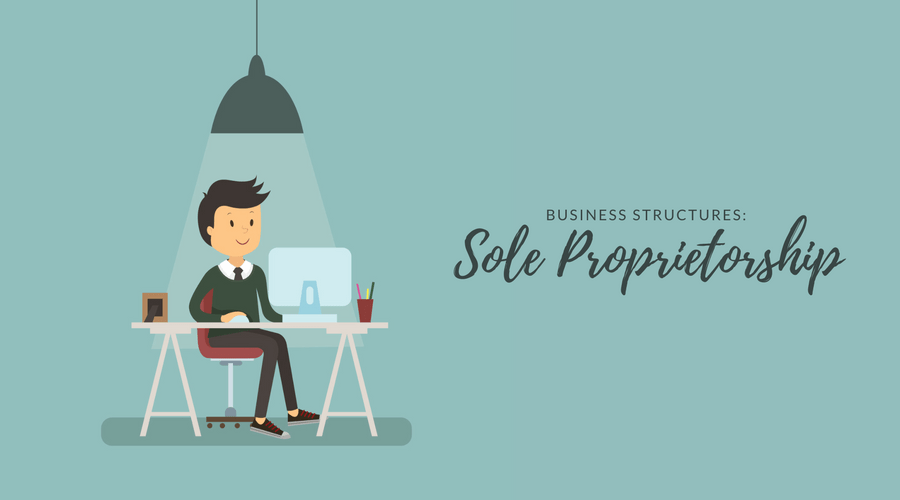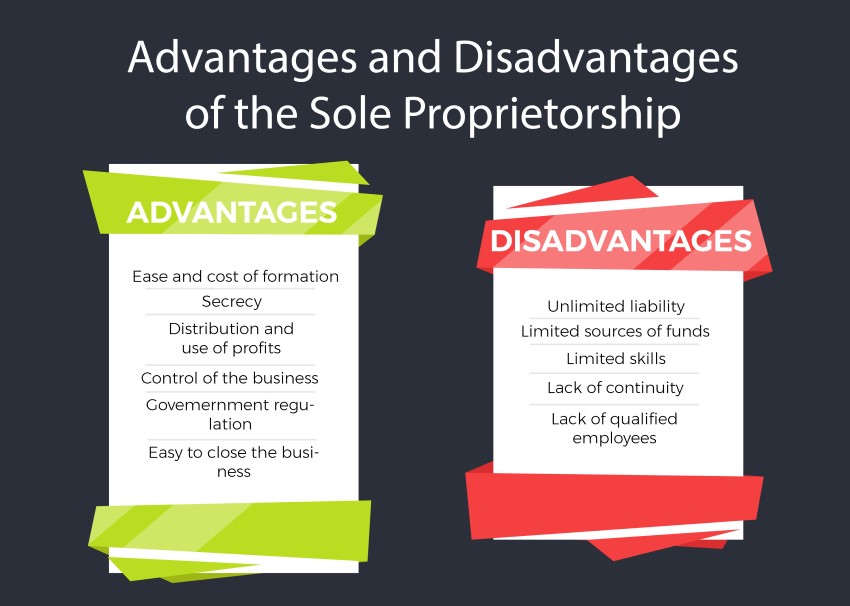For many people, working for yourself sounds like a dream. If your goal is to own and run your own business, you’ll need to set up a private company. You have full control over your business including all profits and liabilities. What is a sole proprietorship? This guide explores the issues associated with sole proprietorship and how you can set up your own sole proprietorship.
What is a Sole Proprietorship?
A sole proprietorship is an unincorporated entity owned by an individual responsible for running it. A sole Proprietorship is the simplest type to set up without a formal business structure. It is often seen in individuals who want to handle the responsibilities and costs of setting up their own company with a limited budget, including the cost of having the legal structure that corporations require. The owner of a sole proprietorship is entitled to all profits but is also responsible for the debts, losses and liabilities of the business. A sole proprietorship can transform into a more complex business structure if the business grows significantly.
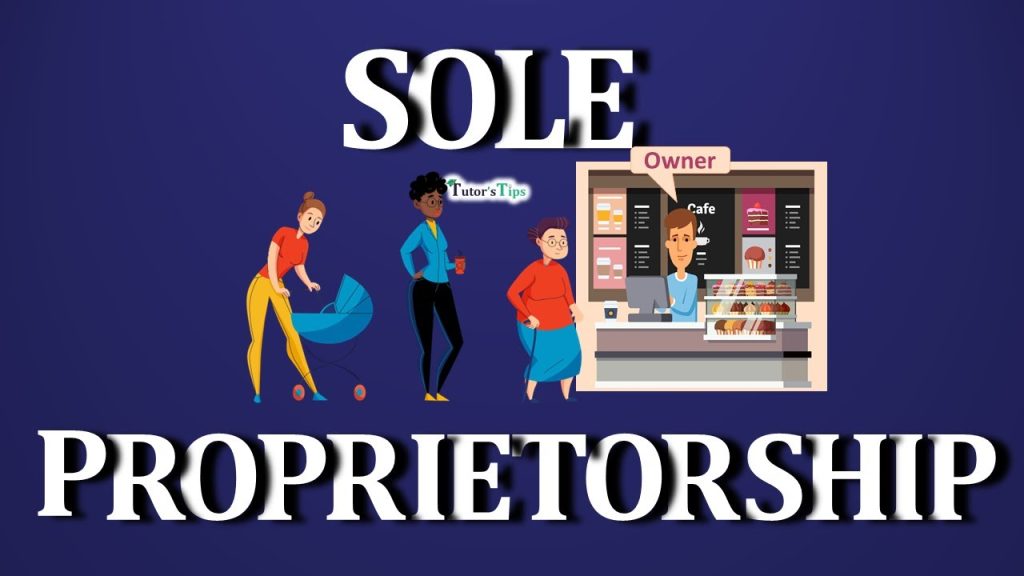
Meaning of Sole Proprietorship
A sole Proprietorship means a company or organization that is owned and operated by one or more private individuals, for the purpose of doing business and seeking profit. It differs from joint stock companies or government financial institutions, in that the ownership rights are shared among many shareholders. A sole proprietorship is required to comply with established rules and laws, but the owners are in complete control and discretion about their business. Sole Proprietorship is an important part of the autonomous economy and a major source of business for many countries.
How does the Sole Proprietorship System work?
The sole proprietorship system is the organization and management of private enterprises in a society or an economy. This system includes established rules and laws that allow private businesses to operate and economic standards to ensure fairness and honesty in business operations. The sole proprietorship system also includes the agreements, contracts, and business relationships between private enterprises with each other and with other parties, such as customers, suppliers, and financial institutions.
The sole proprietorship system also creates a competitive and free business environment for private enterprises, helping them to develop and expand their business activities. A sole proprietorship can choose the business models and consumption channels that suit their needs, seek new business opportunities and grow in an extremely competitive business environment. Overall, the sole proprietorship system is an important factor in the economic strength of a society.
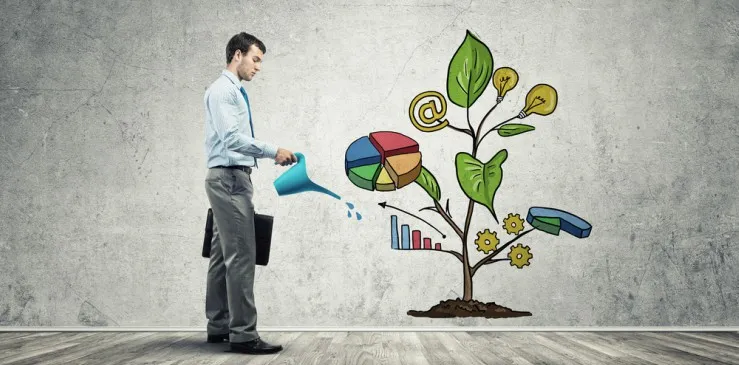
What is the future of Sole Proprietorship?
The future of sole proprietorship depends on many factors, including the economic situation, competition, technology, and management. Sole proprietorships can be more advanced and thrive if they can use modern technology, good management, and the right direction for their products and services. However, there can also be risks and challenges that come from competition and changing market trends. All of these factors will influence the future of sole proprietorship.
Advantages of Sole Proprietorships
- The easiest way to start a business
While the process varies by region, setting up a sole proprietorship is generally an easy and inexpensive process. Compared to other forms of business, the owner needs to submit very little paperwork to the local government and does not have to wait long.
- Less government regulation
There are very few government rules and regulations that are specific to owners. Sole proprietors must keep proper records, records and pay taxes on business income and other sources of personal income.
- The flow of business profits
There is no legal separation between the owner and the business, so the owner gets 100% of the profits. Although all profits belong to the owner, the tax is paid once and the owner pays taxes individually.
- Capable of full control
Owners control all aspects of their business, including production, sales, finance, HR, and more. While some owners have employees and delegate some of their powers, they are ultimately responsible for all of their business decisions and conduct.
Disadvantages of Sole Proprietorships
- Unlimited Liability
The owner and the company are legally one and the same. All liabilities and duties belong to the owner, just like all profits do.
- Difficulty in succession
If the owner cannot or does not want to run the business, it stops. Without a separate legal identity, a sole proprietorship cannot easily transfer any intangible assets from this owner. to another owner. In addition to equipment and fixed assets, the value of the business is inherently tied to the owner.
- Available capital limit
The owners put their resources at the expense of going into business for themselves. There are limits to their financing and the amount of credit they receive when they seek loan relationships. Owners cannot sell shares or profits in their businesses to raise money.
- Enough skills and experience
If the owner does not have enough knowledge or skills, their decision may be flawed. The ability of the owner to use their own time to make a larger profit to offset the cost of hiring help is an important consideration.
Largest Private Companies in the United States
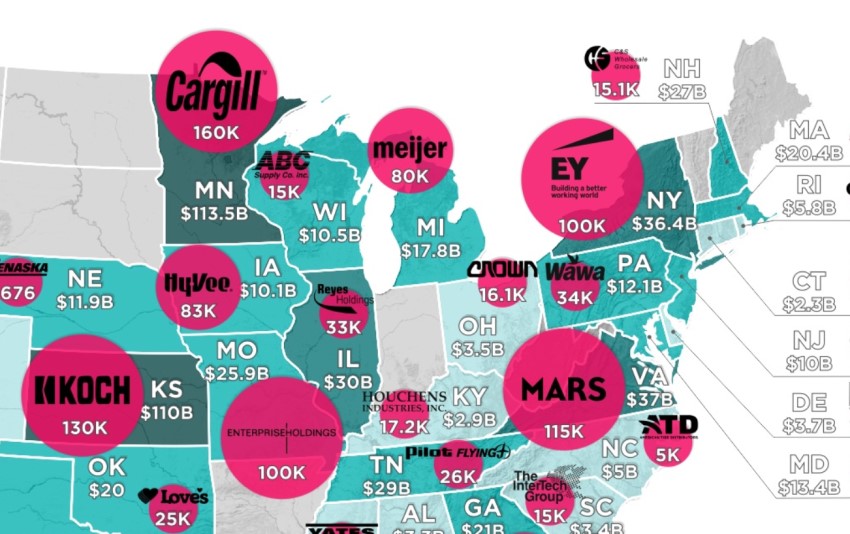
Cargill
Founded in 1865, Cargill deals in everything from animal nutrition to meat processing, beauty care, cooking oils and shipping services. It started as a grain storage company at the end of the American Civil War and has been around for more than 140 years.
Mars
Headquartered in Virginia, Mars is one of the largest food companies worldwide. Tacoma, Washington, is where it all began in 1911. Brands like M&Ms, Skittles, and Snickers are among those connected to this expanding enterprise.
Publix Super Markets
With its corporate office in Lakeland, Florida, Publix bills itself as the biggest employee-owned supermarket company in the country. It runs retail food markets in Florida, Georgia, North and South Carolina, Alabama, and Tennessee in the southern United States.
Reyes Holdings
Reyes is a major supplier to food and beverage retailers worldwide. Among other products and services, it currently supplies beer to more than 71,000 accounts across the United States and is a bottler and distributor of Coca-Cola products.
Conclusion
A sole proprietorship is a straightforward and adaptable type of organization in which one person is entirely accountable for all activities and financial results. A private enterprise’s advantages include low costs and flexible administration, but it also has drawbacks including high financial risk and difficulty raising capital. In general, a sole proprietorship can be a viable option for those who want to do business simply and independently, but they must carefully weigh the dangers and restrictions of this business structure before deciding.

